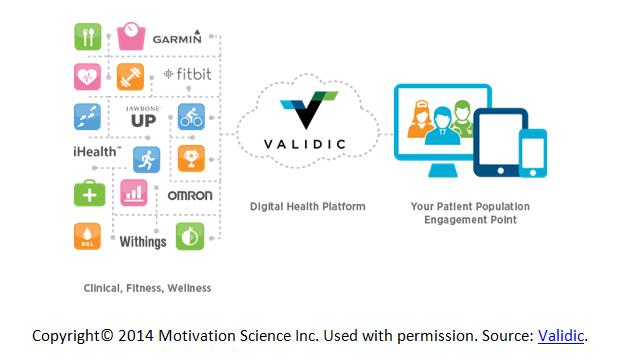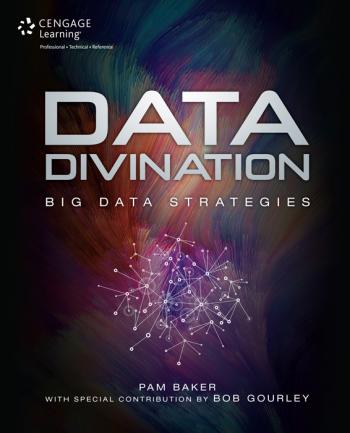Healthcare leaders are suddenly sitting up straight—taking a new view of the value of the tsunami of data at hand. That’s why it’s important to have leaders in healthcare’s big data space, and access to the expertise they can provide.
Big data is a big deal. That’s true not only in healthcare, but in other industries as well—which have led the charge by laying years of groundwork—optimizing big data use to achieve business success. By gathering customer data from a variety of sources, analysis and algorithm development have helped businesses across the globe predict trends and customer behavior in order to anticipate needs and optimize outcomes.
Healthcare’s a Different Data Animal
Having made such big data strides, these parallel industries view healthcare with a critical eye—wondering why it hasn’t been able to do the same. However, here we have a different data animal—with wants and needs that are unique in this space. Issues such as patient privacy, patient consent, government regulations, ethical considerations and the use of clinical analytics at the point of care are much more complex when a patient’s wellbeing hinges on the accuracy of an algorithm—instead of the success of a merchant’s sale.
The healthcare industry produces large amounts of clinical, financial, administrative and genomic data and there is great potential to use big data techniques to optimize its use. According to an R&R Market Research report, the healthcare analytics market alone is estimated to grow at a rate of 23.7% from 2012 to 2017 to reach $ 10.8 billion. McKinsey & Company predicts that the overall ability to capture and analyze the healthcare data at our fingertips is potentially an annual $300 to $450 billion opportunity.
Money and Care are Big Data Drivers
In its predictions, McKinsey & Company cited fiscal concerns as one of the primary drivers for the demand for big data applications for healthcare, noting that U.S. healthcare expenses now represent 17.6 percent of America’s GDP. This has led to the new compensation era which is upon us, in which fee-for-service compensation has been replaced by pay-for-performance and risk-sharing models.
The cry for big data use is emanating from the clinical domain as well. Since evidence-based medicine provides higher quality outcomes, the aggregation of individual data sets from large populations to support clinical analytics and predictive modeling can serve as a valuable tool.
These and other issues have caused healthcare leaders to suddenly sit up straight and take a closer look at the value of the data tsunami at hand—and the impact that optimal use could have on the quality of patient care and boost to the bottom line.
However, saying and doing are not often the same—since many healthcare leaders have no idea how to access and make use of the gold in their pots. The need to tap into data from external sources; integrate, analyze and optimize the cache; and then tip-toe over the eggshells of patient privacy and consent can seem too much to bear. It’s likely why healthcare in general has preferred to stick its head in the big data sand.
That’s why it’s important to have leaders in healthcare’s big data space, and access to the expertise they so aptly provide. Here we highlight two such experts in big data—both of whom have some exciting news to share.
Validic
During the recent Health 2.0 Fall Conference, award-winning aggregator Validic held a prominent spot on the big data stage. The recipient of Frost & Sullivan’s 2014 Healthcare Information Interoperability Best Practices and Best Value Award, Validic provided their expertise for Health 2.0 attendees by sponsoring a Code-A-Thon, leading session presentations, and moderating mobile health panels. A key panel that Validic sponsored, “Data Analytics: From Discovery to Personalized Care,” highlights the importance of analytics in today’s healthcare world.
Highlighting their rapid growth, they also announced the addition of several new clients and integration partners as they continue to grow their global digital health ecosystem—including Alere, The Vitality Group, Everyday Health, Datu Health, and ShapeUp—increasing Validic’s client population size from 72 million to 80 million lives.
Validic is having ongoing discussions with major health systems, health IT vendors, pharma companies, wellness groups and payers. The new additions reinforce Validic’s clinical focus (forecasted by the recent acquisition of Infometers), increasing the company’s footprint in the clinical technologies sector with a current total of 135 connected devices and applications—a number expected to exceed 150 over the next few months.

CEO and co-founder Ryan Beckland, who has referred to patient data as “the new currency of this healthcare marketplace,” provided nuviun with his perspective on the recent news:
“It’s an exciting time for the healthcare industry and for Validic. We’ve added new clients, some of which include The Vitality Group, Everyday Health, Datu Health, and ShapeUp — the universe of our client population now reaches 80 million lives. We have added new integration partners which include blood glucose meters, body scales, blood pressure cuffs, heart rate monitors, thermometers and fitness devices to Validic’s leading digital health ecosystem. One additional integration point will include Apple’s Health App and Apple HealthKit once they have it updated. We are working with several research and academic institutions who are using activity trackers in clinical trials. Lastly, it’s a true honor to be featured in so many client presentations at Health 2.0 this week. It’s exciting to hear the stories and see the evidence of so many companies who are advancing healthcare using Validic.”
Ryan Beckland
CEO and co-founder of Validic
Pam Baker
It’s no secret that there’s a tremendous amount of valuable data available. However, as we noted, the stumbling point for many healthcare organizations is that they don’t know how to use it. That’s where our second Big Name in Big Data comes in: Pam Baker.
Baker is a veteran, award-winning, freelance journalist and writer, and the editor of FierceBigData. She’s been sharing her big data expertise for a number of years through various publishing outlets, including CIO, Institutional Investor, ReadWriteWeb and ITWorld.
Recently, Baker released her new book, Data Divination: Big Data Strategies, which focuses entirely on the strength and execution of data strategy, addressing the specific steps and elements to do that—including applications across ten different industries.

Data Divination is on the U.S. Chamber of Commerce's recommended reading list, and has already been added to library collections worldwide, such as the national library of the U.K.—the British Library.
Reviews for the book are starting to pour in, providing a glimpse into the unique voice and expertise Baker provides in the critical big data space:
“Data Divination: Big Data Strategies, by Pam Baker and Bob Gourley, provides the important middle ground that explains just what big data is and what you can do with it…Most of all, Data Divination helps break the “analysis paralysis” logjam that has so many companies obsessively collecting data but fearing action because there’s no clear strategy. Chances are, by the time you finish reading this book, you’ll have some big data ideas—as well as a plan for how to get buy-in from management.” - Laserfiche
“You’ve gotta read ‘Data Divination: Big Data Strategies,’ Pam Baker’s new book about big data…With a breezy style that reflects her background as a technology journalist, Baker uses clear examples and lots of interviews to make her points…‘Data Divination’ teaches you how to ask good questions…Whether it’s predictive analytics or trend spotting or real-time analysis, she helps you understand which data is valuable and which isn’t. That’s why this book is best for the executive and business-side managers, who are the ultimate beneficiaries of your enterprise’s big data investments…It’s a good book. Read it. And tell your business partner, CIO or even CEO to read it too.” - Alan Zeichick, founding editor SD Times, principal analyst of Camden Associates.
In an exclusive for nuviun, Baker shared her thoughts about what she sees as the most effective approach to making the most of the big data at our fingertips:
"The key to success in big data analysis is to be ultra-clear on your mission. The funny thing is that often what you think of first as your mission, isn't really. Take healthcare, for example. You may think your priority is patient care or you may think it is to cut costs but in reality it is neither because it is both. Those two issues must be merged and not treated separately even though preserving and protecting human life remains the prime consideration. Taking time on the front end to sort out your actual mission is the single most important thing you can do in big data analysis."
Pam Baker
Author of Data Divination: Big Data Strategies
I have an additional reason to be very excited about Pam Baker’s book and expertise, since she is joining forces with nuviun to provide a voice of expertise in our big data space as a regular contributor. Healthcare is about to be hit with big data needs like never before, and it is vastly unprepared. That’s why we’re eager to share Pam’s expertise and insights with our readers to help healthcare leaders, providers, and key stakeholders in the space discover the treasure of big data available—and the best methods to turn it into gold.
By following the lead of big data experts like Validic and Baker, Healthcare can begin to wrap its collective arms around the big data bonanza—stepping beyond the trees and into the forest to benefit patients and boost the bottom line.
Log in or register for FREE for full access to ALL site features
As a member of the nuviun community, you can benefit from:
- 24/7 unlimited access to the content library
- Full access to the company and people directories
- Unlimited discussion and commenting privileges
- Your own searchable professional profile







.jpg)
